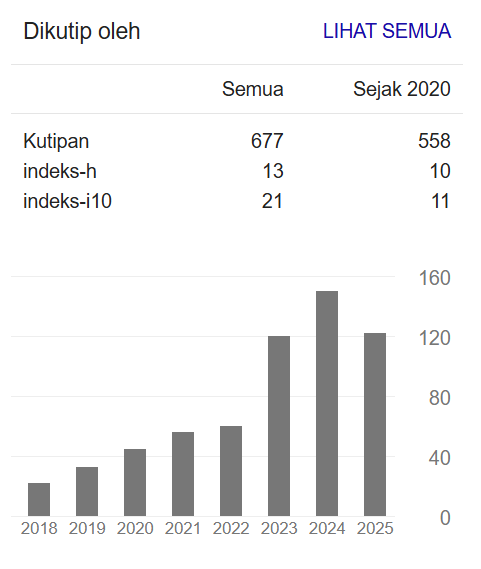EXAMINING THE COMPONENT OF TRUTH IN ART BASED ON MULLA ṢADRĀ’S OPINIONS
DOI:
https://doi.org/10.20871/kpjipm.v9i1.269Keywords:
Art’s Work, Imagination, Knowledge, Reason, Ṣinā‘at, TruthAbstract
How can the presence of truth in art be philosophically justified? A fundamental question that can be answered in the wisdom of Mullā Ṣadrā, one of the most important philosophers of Islam. The importance of the question of the relationship between art and truth arises from the state of art in the present era. In fact, the degradation of reason in front of feeling from the nineteenth century until today has made the field of arts devoid of any representation of the truth and caused the importance and originality of finding pleasure or evoking feelings in the arts. Therefore, with a philosophical approach and relying on the descriptive-analytical method, at first, it described the fundamental of truth and delusion, the unity of the world, and the known, practical reason and the function of imagination in shaping intellectual concepts based on Mullā Ṣadrā’s views, and then with relying on those principles, he has examined the formation of truth-based works of art. The most important conclusion of the article is that art is not the only product of the feelings and taste of its creator; Rather, the artist, in his understanding of the truth, prepares the ground for its manifestation in the work of art. With this characteristic, art finds a form of rational knowledge, and symbolic and mystical arts are among the most important examples of this type of artistic creation.
Downloads
References
‘Abūdiyat, ‘Abdu al-Rasul. 2012. An Introduction to Hikmat Sadra'i System (Anthropology). Tehran: Samit Publications and Qom Imam Khomeini Institute Publishing.
Āmulī, Ḥasan Ḥasanzādeh. 1382. Two Treatises Like and Example. Qom: Toubi Prose Publications.
Croce, Bandeto. 1367. General Aesthetics. Translated by Fu’ad Rūḥānī. Tehran: Scientific and Cultural Publications.
Dīnānī, Gholam Ḥossein Ebrāhīmī. 1379. The Story of Philosophical Thought in the Islamic World. Tehran: New Design Publications.
Fanārī, Muḥammad bin Ḥamzah al-. 1374. Miṣbāḥ al-Uns. Edited by Muḥammad Khajāwī. Tehran: Molly Publications.
Heidegger, Martin. 1991. Nietzsche. Translated by David Farrell Krell. Newyork: HarperCollins Press.
Heidegger, Martin. 2016. ‘Age of the Image of the World’. Arghanun 11(1): 21–35.
Hume, David. 1826. Philosophical Works of David Hume. Edinburgh: Adam Black.
———. 2005. Enquiries Concerning the Human Understanding and Concerning the Principles of Morals. USA: Independently Published Liberty Fund Inc.
Khāmeneī, Muḥammad. 2019. ‘Mental Existence and the Inner World’. Khardnameh Sadra Magazine 64 (8):45–69.
Muḥammad, Ghāzī bin. 2013. The Sacred Origin and Nature of Sports and Culture. Translated by Ḥasan Nūrī Biddekht. Tehran: Haqirat Publications.
Shīrāzī, Ṣadr al-Dīn Muhammad al-. 1354. Al-Mabda and Ma‘ād. Edited by Jalāluddīn al-Ashtiyānī, Tehran: Anjuman Hikmat and Philosophy.
———. 1363a. Kitāb Al-Mashā‘ir. Editted by Henri Corbin. Tehran: Tahori Publications.
———. 1363b. Mafātiḥ al-Ghayb. Edited by Khajāwī. Tehran: Cultural Research Institute.
———. 1366. Tafsir of Mulla Sadra. Qom: Bidar Publications.
———. 1382. Shawāhid al-Rubūbiyyah. Edited by Musṭafa Muhagheq Damad. Tehran: Sadra Islamic Wisdom Foundation.
———. 1981. Al-Ḥikmah al-Muta‘āliyyah fī al-Asfār al-‘Aqliyyah al-Arba‘ah. Beirut: Dār al-Ihyā al-Turāth al-‘Arabi.
———. 2012. Sadr al-Mutalahin's Commentary and Commentary on the Theology of Healing. Edited by Najafaqlī Ḥabībī. Tehran: Sadra Islamic Hikmat Foundation.
Tatarkiewicz, W. 2005. History of Aesthetics, Edited by C. Barrett. London: Continuum International Publishing Group.
Ṭūsī. Naṣīr al-Dīn al-. 1367. Asās al-Iqtabas fī al-Manṭiq. Tehran: University of Tehran Press.
———. 1375. Commentary on Signs and Warnings. Qom: Nash al-Balagha.
Yazdī, Muḥammad Taqī Miṣbāḥ. 1372. Teaching Philosophy. Qom: Islamic Propaganda Organization.
Downloads
Published
How to Cite
Issue
Section
License
Copyright (c) 2023 Mahdi Amini, Mojtaba Akhoondi

This work is licensed under a Creative Commons Attribution 4.0 International License.





























